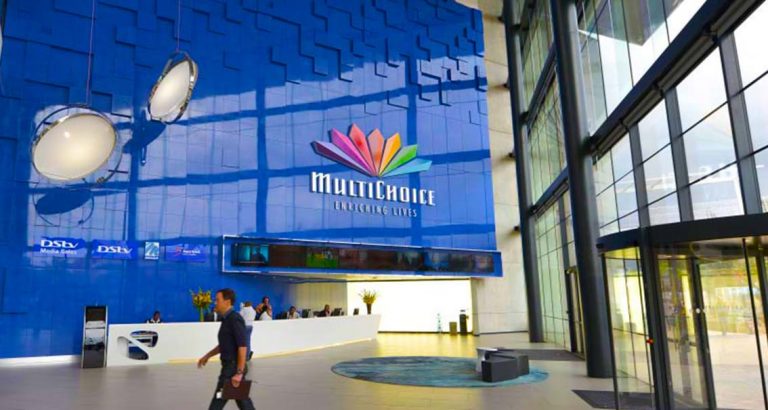
African pay-TV giant Multichoice Group has confirmed that its Nigerian operations shed a staggering 1.4 million subscribers between 2023 and 2025, marking one of the most significant contractions for the company in any single market.
The development, disclosed Wednesday in its audited results for the financial year ended March 31, 2025, underscores the intensifying financial pressure on households in one of Africa’s largest economies.
This follows an increase in the prices of Multichoice’s DStv and GOtv subscription packages three times within the two-year period. The Group, in its report, blamed several structural and economic factors—most notably high inflation, repeated power grid failures, and widespread fuel scarcity—for the downturn in its Nigerian customer base.
Register for Tekedia Mini-MBA edition 19 (Feb 9 – May 2, 2026).
Register for Tekedia AI in Business Masterclass.
Join Tekedia Capital Syndicate and co-invest in great global startups.
Register for Tekedia AI Lab.
But beyond those operational and infrastructural issues, analysts say the real drag is Nigeria’s harsh economic reality, which has steadily pushed pay TV off the list of essential household spending.
Multichoice’s earnings report lends weight to that perspective. According to the company, Nigeria accounted for 77% of the total 1.8 million subscribers lost across its Rest of Africa (RoA) operations during the review period. The RoA subscriber base dropped from 9.3 million in 2023 to 7.5 million in 2025.
“Inflation across key markets remained high (around 20% on a weighted average basis, above 30% in Nigeria and Angola) and caused pressure on customer spending,” Multichoice wrote in its report.
The economic downturn has deeply affected consumer behavior. A combination of job losses, reduced disposable income, and rising prices of food, fuel, and other essentials has made entertainment spending increasingly unsustainable for many Nigerian families.
While the company continues to lose customers, the rate of decline has shown some moderation. In 2024, Multichoice’s RoA subscriber base fell by 1.2 million—from 9.3 million to 8.1 million—a 13% drop. That pace slowed in 2025, with the base declining by 600,000 to 7.5 million, representing a 7% decrease.
However, Nigeria’s share of the loss remains disproportionately large. According to the company, the country alone contributed over half of the 2025 decline.
“Subscriber activity was further affected by power shortages across Zambia, Zimbabwe and Malawi, ongoing power and fuel shortages in Nigeria, and civil unrest in Mozambique,” the Group added.
Multiple Price Hikes Deepened Consumer Resentment
Even as incomes shrank, Multichoice Nigeria increased its subscription prices three times in the last two years—a strategy many say worsened its attrition problem. The company first hiked prices in April 2023, followed by another increase in November of the same year. A third increase was announced in April 2024 and implemented on May 1.
These price hikes sparked outrage among Nigerian subscribers and consumer protection groups, many of whom argued that the increases were unjustifiable given the worsening quality of service and economic hardship.
While the company has not announced another increase, many observers expect that Multichoice could consider it again, given ongoing currency pressures and a shrinking revenue base. But analysts warn that another hike could trigger even more losses.
Group Financial Performance Under Pressure
The toll from Nigeria and other African markets is clearly visible in Multichoice Group’s broader financials. Revenue for the 2025 financial year fell by ZAR5.2 billion (about 9%) to ZAR50.8 billion, mainly due to an 11% drop in subscription revenue driven by currency depreciation and lower subscriber volumes.
Trading profit dropped 49% year-on-year, down from ZAR3.8 billion to ZAR4.0 billion. A significant part of this came from a ZAR2.3 billion loss at its streaming arm, Showmax, and a ZAR5.2 billion foreign exchange loss.
“The past two financial years have been a period of significant financial disruption for economies, corporates and consumers across sub-Saharan Africa,” the company stated in its executive summary, adding that “macroeconomic pressures, piracy, social media, and cheaper streaming alternatives” had materially impacted overall performance.
A Shifting Landscape for Pay-TV in Africa
Multichoice’s struggles highlight a broader challenge for legacy pay-TV providers across Africa. As streaming services like Netflix and Amazon Prime expand into African markets and data costs fall, traditional satellite and cable TV face increasing competition—not just in pricing, but also in content accessibility and flexibility.
However, for now, affordability remains king.
With the customer base still in decline and macroeconomic conditions unlikely to improve soon, the big question remains whether Multichoice can adapt fast enough to retain relevance in one of its most strategic, yet most volatile markets.



